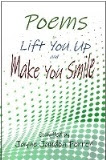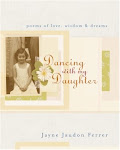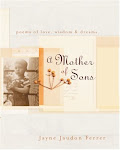A new poll reports writers' votes for the ten greatest books of the 19th and 20th centuries. It's worth reading the entire article here, but take a quick glimpse at the winners:
Top Ten Works of the 19th Century
1. Anna Karenina by Leo Tolstoy
2. Madame Bovary by Gustave Flaubert
3. War and Peace by Leo Tolstoy
4. The Adventures of Huckleberry Finn by Mark Twain
5. The Stories of Anton Chekhov
6. Middlemarch by George Eliot
7. Moby-Dick by Herman Melville
8. Great Expectations by Charles Dickens
9. Crime and Punishment by Fyodor Dostoevsky
10. Emma by Jane Austen
Top Ten Works of the 20th Century
1. Lolita by Vladimir Nabokov
2. The Great Gatsby by F. Scott Fitzgerald
3. In Search of Lost Time by Marcel Proust
4. Ulysses by James Joyce
5. Dubliners by James Joyce
6. One Hundred Years of Solitude by Gabriel Garcia Marquez
7. The Sound and the Fury by William Faulkner
8. To the Lighthouse by Virginia Woolf
9. The Complete Stories of Flannery O'Connor
10. Pale Fire by Vladimir Nabokov
Do you agree? Have you read all of these profound pieces of literature?
Aside from Middlemarch, I completely agree with the 19th century list. Despite my friend April's assertion that it's the best book she's ever read, I've never been able to get past the first chapter before thinking, "Nope, life's too short for this." Call me bourgeois; what can I say? In any case, I'd be hard pressed to choose a favorite from the rest of that list; all are wonderful stories whose popularity with generation after generation is certainly testament to their greatness. (My 21-year-old son is currently reading Anna Karenina and is completely captivated by it.)
The 20th century list is a little harder to cheer for. I've only read about half those titles (have tried to read Joyce but, genius or not, he's not my cup of tea) and, of those I have, neither Lolita nor The Great Gatsby would make my top ten list. I wouldn't have wanted to miss them but, frankly, my dear, Gone with the Wind and Little Women brought me a lot more pleasure. The stories of Flannery O'Conner, whom I discovered in high school, stay with me to this day, as do those of William Faulkner, who--admittedly--may be as much of an acquired taste as James Joyce, though I think Mr. Faulkner is infinitely easier to embrace.
Polls, as we are all too aware in this nasty political season, are often nothing more than polarizing tools of propaganda. I hope these will be, instead, a source of inspiration, conversation, and motivation for you or your book club. Most of us don't pluck War and Peace off the shelf for a quick read, and I'm afraid the few of us who still include libraries and bookstores on our list of hang-outs know a lot more about Stephanie Plum than Pip. But there's a deep satisfaction that comes with being "well read;" not only does it give us an advantage on Jeopardy and in Trivial Pursuit, it allows us to feel part of something bigger than ourselves--part of a giant mind meld, if you will, that transcends our differences and brings our disparate selves together temporarily, at least on a literary level.
Subscribe to:
Posts (Atom)







